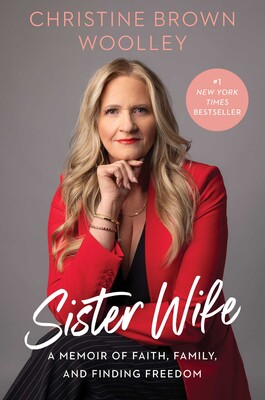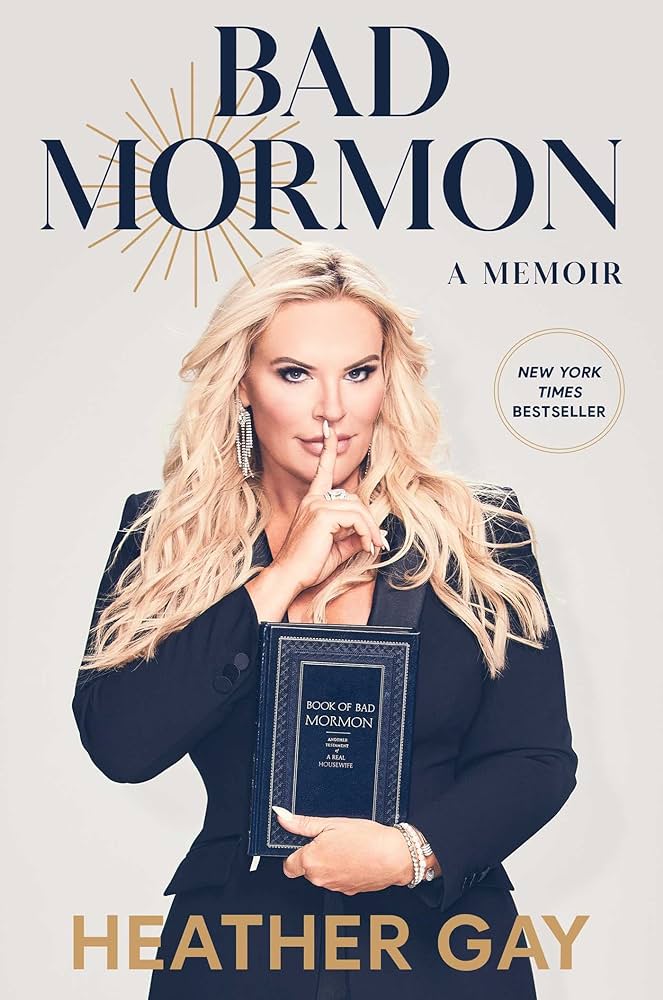It’s that time of year when all my favorite reality television shows are back with new seasons, and once again my rotation leans heavily towards the religious. Though it might be artificial, manufactured, and overproduced, reality television can still offer a lens into religious belief and religious practice, and like many other people, I just can’t seem to stop watching.

Sister Wives: We’re on Season 20, and I’ve watched every single episode. What started out as a show introducing people to a “normal” polygamist family has turned into something else entirely after so many years on air. Now we get to watch the Brown family navigate the dissolution of three of the four marriages and all of them leaving plural marriage. It’s been interesting watching the women, in particular, grapple with their experience with polygamy and Mormon fundamentalism and find themselves and new faith now that they’ve left both their marriage to Kody Brown and those beliefs behind. Christine Brown’s recent memoir is a nice complement to this latest season, as she gives additional insight in her book to her own shifting religious beliefs away from the Mormon fundamentalism she was raised in.
Seeking Sister Wife: I’m a little ashamed to admit how much I enjoy this show. Each season follows a few couples exploring polygamy and sometimes polyamory. Some of them are religious, while others aren’t. As expected, there are a good number of Mormons on the show, but each season also features at least one couple who are following their own sort of Christian faith. Some of them were run-of-the-mill evangelical Christians until, by their own report, they read the Bible and/or received the revelation from God that polygamy was a biblical mandate. It’s one of the most interesting parts of the show to me; as the viewer, you’re almost watching people create their own religious beliefs and practices in real time.

Real Housewives of Salt Lake City: It might be a stretch at this point to call this one a reality television show about religion. But while religion might not be a central plot point, several of the housewives on the cast are ex-Mormons and one of them is the pastor of a Pentecostal church with a somewhat shady reputation. Housewife Heather Gay has been particularly open about her faith and journey leaving the LDS church. In fact, she wrote an entire memoir about it appropriately titled Bad Mormon.
Surviving Mormonism: Building off that memoir and branching off from Real Housewives of Salt Lake City is Surviving Mormonism, out this week and hosted by Heather Gay from the aforementioned Real Housewives franchise. Coming on the heels of her memoir about leaving Mormonism, the series seeks to dig a little deeper into Mormonism’s “mainstream moment” as Gay calls it in the first episode of the docuseries. She notes the role of Mormon influencers in glamorizing a conservative, “traditional” lifestyle on social media and in reality television and marketing the Mormon faith in a very specific way. The docuseries, then, is her means of offering a counternarrative and allowing space for ex-Mormons to speak out on what they see as the more troubling aspects of the LDS church. Though I’m only one episode in, it seems promising, and I’m excited to watch the rest of the series in concert with the other shows I’m watching this fall.
On deck next, the new season of Secret Lives of Mormon Wives, out on Hulu in just the last few days. And in the new year, I’m looking forward to a new docuseries on TLC on Mary Cosby’s church and its troubled history. Cosby is one of the cast members on Real Housewives of Salt Lake City and the pastor of Faith Temple Pentecostal Church.
It might all seem a little silly at first glance, but I’d argue that perhaps the religious elements of reality television offer some insight into our shifting understandings and practices of religion. It offers a window into the individual religious beliefs and practices of the people on these shows. And in its own way, it points to the place of religion in our current cultural moment and the ongoing fascination in the United States with its role in our lives and society. Because of that, I, for one, plan to continue consuming and delighting in these little tidbits of religion in the age of reality television.


2 Responses
I must admit, I watch little if any reality TV. Nonetheless I appreciate your summaries and insights. What strikes me most is the the absence of the exercise of discernment within religious tribalism. Marx was so right in identifying “religion” as the opiate of the people. I increasingly perceive that the “kingdom of God,” as Jesus drscribed it, is distinct from the institutional church. We all tend to become “cultish.”
Thanks for sharing your insights. I hear you wondering how to sound the alarm without becoming deconstructionistic and cynical. Your voice is valuable and your perspective is unique.
I love how these multi-authored blog posts interact as we read them, in or out of order. The rate of one post per day is fast, and this rotation of composers makes quite a mixtape! I am still thinking a lot about the Frankenstein post from Nov 7, especially the header image of Creator Victor sawing through a random tibia.
Your post sits here, a day after Nov 14 post on the blessings and curses that come out of ligamenting our faith inheritance to a trio of Dutch Reformed kerk standaards, and a day after the Nov 16 post on the technological miracle of grafting dead or disarticulated body parts into a living organism. This Nov 14, 15, 16 weblog trio gives me a clue how the re-ligamenting bond called religion shapes us over the long haul.
We get re-membered by hashing and rehashing our ancient artifacts of the Three Unifying Standards, which have been energizing orthoped(ant)ic amputations in the body politic since the 1560s. They keep sewing many of us in, cutting many of us out so that the most orthodoctrinated of our children will keep singing “a goodly heritage is mine, marked out with gracious care” from navyclothed 1927 Psalters.
We get re-membered by celebrating contemporary artifacts like arthroscopic cameras and suture needles, which truly flesh out the links between our scientific inquiry and our resurrection hope.
Some artifacts that have kept me most re-membered into my faith community are the Genesis stories about the domestic affairs of womenfolk like Hagar, Sarah, Rebekah, Rachel, Leah, Tamar, and their favor-grappling menfolk like Isaac, Ishmael, Jacob, Esau, Judah, Joseph. Your post sits in place here so perfectly, right on track with the Genesis approach to religious formation— consistent engagement with memorable stories of domestic bonds, ruptures, and sutures.